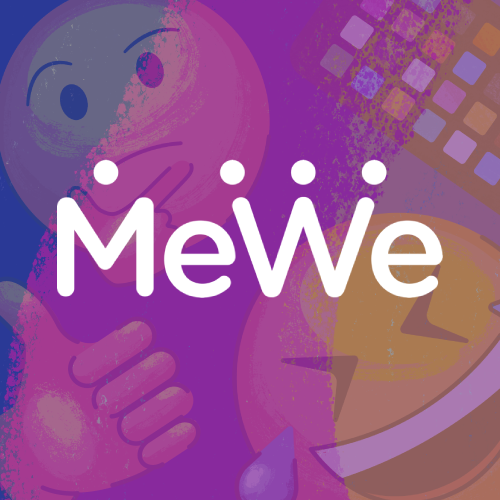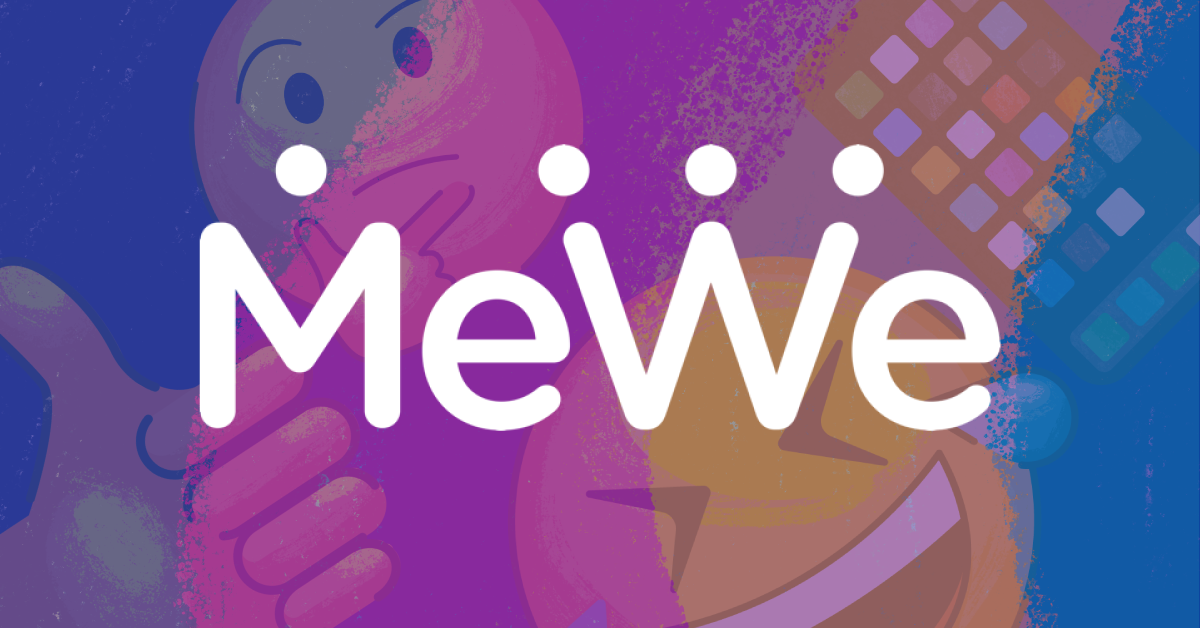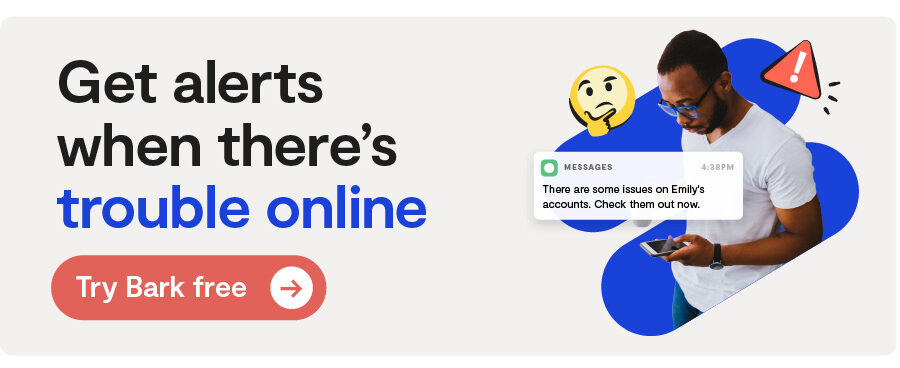 Kids and Technology
Kids and Technology
Is the MeWe App Safe for Kids? What You Need to Know About This Facebook Competitor

Have you ever told your teen that you wish you had a set of comfy, cozy unicorn PJs — only to log onto Facebook later that day to see an ad for (you guessed it) comfy, cozy unicorn PJs? An experience like this may have left you feeling a little weirded out. Like you, many other people have concerns about how social media platforms serve them a number of targeted ads. The MeWe app was created in an attempt to address this issue.
But MeWe, which claims to have 8 million members (and is projected to reach 40 million in 2020), works to create freedom from more than just advertising. Its other goals are much broader — and they might even be dangerous for teens. Here’s what you should know (and how Bark can help by blocking it on your child's devices).
What Problems Does the MeWe App Claim to Solve?
MeWe claims to be an innovative social platform. It brands itself as an uplifting, ad-free, targeting-free, and safe place for people to express any thoughts and feelings they may have. Users can share photos, videos, documents, voice messages, chats, GIFs, and more. They can interact directly with another user, in a group of two or more people, or in an open community forum formed around a shared interest or hobby. There are more than 266,000 open groups on the platform, and they can be built around anything from similar ideologies to a love of classic cars to an appreciation for tasty vegan food.
MeWe’s website describes it as a place for people to really open up with their opinions: “MeWe is the uplifting next-gen social network for everyone who wants to have fun, communicate authentically and share like-minded & disparate ideas under the umbrella of trust, control, and safety.” But unchecked speech isn’t always a good thing — especially for the teens who may use the app.
What Are the Potential Dangers?
MeWe is appealing to many people who are interested in activities that are banned on traditional social platforms like Facebook. For example, a number of users take to the app to sell animals they’ve bred, purchase a variety of weapons, and more. In fact, in the aftermath of the shutdown of the Parler app (allegedly a hotbed of plans to incite violence during the Jan. 6 insurrection at the Capitol), many of those displaced users flocked to MeWe to continue airing their grievances, citing the platform’s embrace of “free speech.” MeWe may not become the next Parler, but it has become a known haven for controversial content. But those aren’t the only potential issues you need to know about.
Sexual content
Although MeWe claims to protect its users against “haters, bullies, porn, spammers, bots, lawbreakers, violence inciters, etc.,” pornography is unfortunately still an issue on the platform. In a 2020 Google Play review, one person wrote, “Every page/chatroom has some kind of porno link. Vulgar language and obscene picture/videos. You can't report them and they aren't being deleted.”
Unfortunately, content about pedophilia is also exchanged on the platform, according to another 2020 review. If your teen uses the app to chat with friends or meet people online, they may be exposed to sexual images, videos, and comments that are very disturbing. If they reveal that this is something they’ve experienced, be sure to give them the support they need.
Privacy concerns
While data privacy is one of the hallmarks of MeWe’s appeal, it doesn’t quite live up to its lofty ambitions. A number of users have reported issues with their content’s security. One person left an App Store review saying, “This app was all up in my private stuff with no requested permissions given, and of course Background App Refresh enabled, as well... so concerning!”
Others have expressed frustrations around the fact that some of the privacy features aren’t free. For example, the ability to change messages through encrypted Secret Chat costs $0.99/month or $5.99/year. “Having a subscription model for encryption is a dealbreaker for me,” one person commented in a review on the App Store. “If a company is going to talk big about privacy being a right, then it should walk the walk too. Actions>Words.”
Hate speech
Hate speech is perhaps the most significant issue on MeWe. Because the platform is so adamant about its support of free speech, many users gravitate toward it so they can share opinions and views that are generally regarded as unwelcome on mainstream sites. These alternative views can range from telling racist jokes to memes claiming the Holocaust is a hoax to spreading harmful conspiracy theories.
“There’s nowhere in our terms that says you may not post fake news,” MeWe founder Mark Weinstein told Rolling Stone. “It’s not my job to censor good, law-abiding citizens abiding by our terms of service discussing…their opinions.” Regardless of the effect this may have on adult users, teens aren’t always well-equipped to tell the difference between a fact and a conspiracy theory. They also aren’t necessarily as aware of what jokes may cross a line as opposed to which ones are totally cool to tell.
Important Conversations to Have With Your Child
Whether or not your teen is already spending time on MeWe, let this serve as a reminder to chat with them about online safety. Take some time to walk them through what hate speech looks like and how it can harm other people — giving them time to express their own feelings about anything they may have experienced themselves. You can also spend some time going through what it means to be a good online citizen. Remind them that they can use the internet for good. Lastly, chat about the importance of considering their digital footprint. Messages and comments that may seem like “just a joke” can easily be screenshotted and then haunt them for years to come.
If you decide that MeWe is not appropriate for your child, you can block it using Bark's web filter. From the drop-down menu in the top-right corner of your dashboard, navigate to the “Screen time” section. From there you can use our web filtering feature to manage access to MeWe by toggling it to “Blocked.” That can help you have some peace of mind knowing that your child won’t be using the MeWe app unless you decide it’s right for them.
Read more
Bark helps families manage and protect their children’s digital lives.





